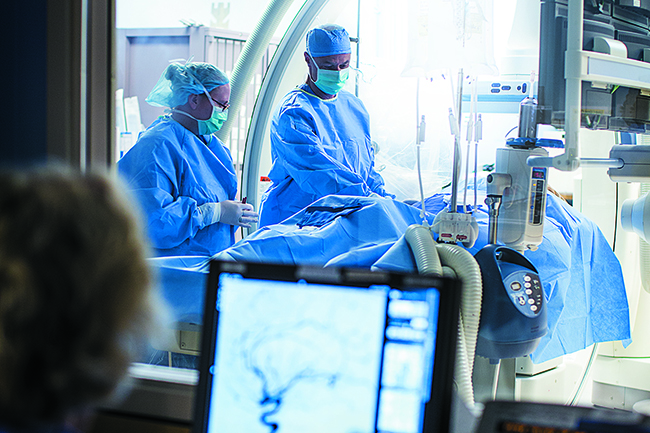When a person experiences a stroke, the type of treatment he or she receives is largely dependent on what caused the stroke. So what happens when the cause is unknown?
Treatment following a stroke has dual purposes — it’s intended to limit the damage caused by the stroke and help prevent another stroke. Because of this, stroke patients undergo different types of testing to determine the cause of their stroke.
But in a fairly large number of cases, the stroke has no known cause, a type of stroke known as “cryptogenic stroke.” In fact, according to the American Heart Association (AHA)/American Stroke Association (ASA), as many as 30 percent of ischemic strokes are classified as cryptogenic.
James Fleming, MD a board-certified neurologist with UT Erlanger Neurology, offers answers to some questions about cryptogenic strokes.
Q: So, what exactly is a cryptogenic stroke?
A: In most cases, a stroke is caused by a blood clot that blocks the normal flow of blood to the brain. Approximately 1 in 4 stroke survivors will have another stroke event, so it is important to rule out any known causes. Your neurologist may order a number of tests to look for a cause. In about a third of cases the stroke has no known cause, a type of stroke known as “cryptogenic stroke.”
Q: What are potential causes behind a cryptogenic stroke?
A: There are many different causes, including the heart valve infection known as endocarditis, structural abnormalities of the heart, blood clotting disorders, and the abnormal heart rhythm atrial fibrillation. These are discussed in more detail below.
Q: What types of testing are done to try and uncover the cause of a stroke?
A: We conduct a thorough workup to find the underlying cause. Typical testing includes an examination of your brain and blood vessels using CT or MRI. An ultrasound of the heart will likely be performed. Lab work includes checking cholesterol levels and checking for diabetes.
Your doctor may order blood tests to evaluate for infection, an echocardiogram to evaluate for structural abnormality, lab work to screen for clotting disorders, or long term heart monitoring to capture an abnormal heart rhythm. The abnormal heart rhythm atrial fibrillation is quite common, affecting nearly 3 million Americans. If a person has this condition, the upper chambers of the heart beat rapidly and irregularly and blood doesn’t pump efficiently to the rest of the body. Atrial fibrillation can go undetected because it often has no symptoms and may occur infrequently. Your doctor will determine if any of these more advanced tests are right for you.
When a stroke occurs, you need prompt, experienced care. Rest assured that if you or a loved one have a stroke, you can find that care at the Southeast Regional Stroke Center at Erlanger, the region’s only comprehensive stroke center.







